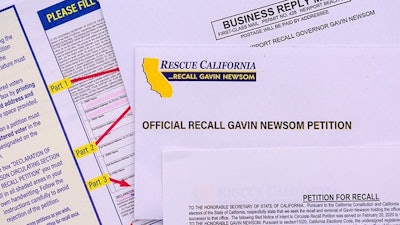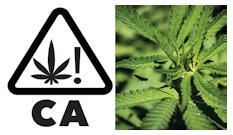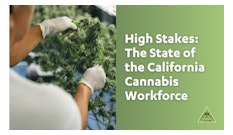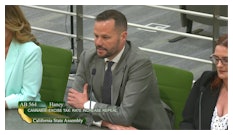
California’s 1911 recall law means a governor who wins 49.9% of the vote in a recall election can be replaced by someone who gets 20% or even less.
That is what’s at stake for Democratic Gov. Gavin Newsom, who is up against a Republican-backed attempt to oust him from office during a California gubernatorial recall election Sept. 14.
In the two-part ballot process, should a simple majority of voters on the recall question answer “yes,” Newsom will be removed from office and succeeded by a candidate receiving the highest number of votes on the latter question for a replacement candidate. The current recall candidate frontrunner is Republican Larry Elder, whom some polls show drawing upward of 30% of the likely voters in a 46-candidate race.
The replacement rules require only a plurality, meaning Elder only needs to finish ahead of the other 45 candidates to win and serve out the remainder of Newsom’s four-year term—which ends Jan. 2, 2023—should Newsom be recalled. Elder will not go head-to-head against Newsom.
A conservative talk radio host, Elder would mean trouble for the state’s cannabis industry, said Jared Schwass, who practices law in the cannabis space as the founder of California-based Schwass Law Firm. Schwass was born and raised in Mendocino County.
“Larry Elder has stated that he wants to tax and regulate cannabis, which already faces overtaxation and regulation, and increase the number of cannabis-related arrests,” Schwass said. “The changes proposed by Elder would stifle growth in the cannabis industry, continue to squeeze out small businesses, which are already struggling in the industry, and return to a ‘war on drugs’ type of police enforcement.”
On the other hand, many California cannabis businesses, especially small farms, are currently going through hard times and Newsom has been blamed for many of the struggles, Schwass said. However, the root to some of those struggles predate Newsom’s governorship, he said.
In California, the shape of the adult-use industry has been marred with high taxes, licensing hurdles and burdensome regulations making it difficult for legal operators to compete with the illicit market. California’s Legislative Analyst’s Office recently estimated that adult-use cannabis businesses operate in less than one-third of jurisdictions statewide.
RELATED: California’s Cannabis Industry Marred by Limited Supply Chain and Heavy Tax Burden
When it comes to moving the state’s industry in a more positive direction, Newsom hasn’t been perfect, according to California NORML. The advocacy group released a statement on the recall election that said Newsom has been criticized for not pushing hard enough to reduce some of the industry’s burdens and for being a “stickler” for anti-smoking rules that wrongfully treat cannabis like tobacco.
“But his hands have also been tied by the [state] Legislature, federal laws and California’s overly restrictive Prop. 64 initiative,” California NORML Director Dale Gieringer said in the news release.
California’s adult-use cannabis ballot measure that was approved by voters in the November 2016 election, Proposition 64 was enacted under former Gov. Jerry Brown, who wasn’t on the front-line supporting legalization leading up to the initiative.
During a Meet the Press national broadcast in March 2014, Brown said he wasn’t sure if legalizing cannabis was a good idea. “The world’s pretty dangerous, very competitive,” he said. “I think we need to stay alert, if not 24 hours a day, more than some of the potheads might be able to put together.”
While the sponsors of next week’s gubernatorial election are no friends of cannabis or criminal justice reform, Gieringer said, no governor has been so supportive of legal cannabis as Newsom.
“When other politicians were ducking the issue, then-Lt. Gov. Newsom became the highest-ranking state official to endorse legal adult use and established a task force to help guide the way,” he said.
Since becoming governor, Newsom has appointed capable, helpful officials who have been accessible, according to California NORML, which added that Newsom’s administration has “advanced measures to expand on-site consumption and licensed cannabis events; promote equity applicants; afford business tax deductions; allow billboard advertising; and improve and streamline the state’s burdensome regulatory system.”
Former Gov. Brown was also in office during the implementation period of California’s Control, Regulate and Tax Adult Use of Marijuana Act, which initiated the state’s collection of a 15% excise tax, a sales tax and a cultivation tax when adult-use sales launched in January 2018.
As such, Newsom has received criticism for Brown’s decisions and policymaking, Schwass said.
Since Newsom assumed the governor’s office in the beginning of 2019, the California cannabis market continues to grow, generating a record $2.6 billion in taxable sales in the first half of 2021, which generated more than $638 million in tax revenue for those two quarters alone.
RELATED: California Cannabis Industry Has Provided $2.8 Billion in Tax Revenue Since 2018
Earlier this year, Newsom approved legislation to simplify California’s regulatory scheme by consolidating regulatory authorities. Previous law generally divided responsibility for the state licensure and regulation of commercial cannabis activity among the Bureau of Cannabis Control in the Department of Consumer Affairs, the Department of Food and Agriculture and the state Department of Public Health, according to Assembly Bill 141.
“While Gov. Gavin Newsom hasn’t lived up to everything the cannabis industry was hoping for while in office, he has helped move us forward by proposing and signing Assembly Bill 141, which consolidates the three cannabis agencies into a single regulatory body [the Department of Cannabis Control] as well as by providing relief extensions on provisional cultivation licenses awaiting CEQA review,” said Julia Jacobson, CEO of Aster Farms, a sustainable cannabis company in Northern California.
Also this year, Newsom supported a one-time $100 million in grant funding to aid local businesses with provisional licenses in transitioning to more permanent licenses, which involves time-consuming and complicated environmental studies around the impacts of their operations and how they can reduce potential harms—a required step mandated in the California Environmental Quality Act (CEQA).
The mandate to move all businesses from temporary licenses to formal ones was meant to occur in 2019, but the deadline has since been bumped (twice) to Jan. 1, 2022. Newsom has pushed for that deadline to be extended another six months.
When that $100-million grant was approved, Newsom’s senior adviser on cannabis, Nicole Elliott, said the governor was dedicated to the success of the state’s legal industry.
Schwass said, “California’s cannabis industry is not in the position stakeholders would like it to be, but it is in a good position for continued growth and could be the open industry we all expect it to be with a few little tweaks. Gov. Newsom has shown that he is willing to make those needed tweaks, but many have been delayed because he has had to deal with the COVID-19 pandemic since early 2020.”
Gieringer said Newsom deserves credit for declaring cannabis to be an essential service during the onset of COVID-19 government shutdowns, “a move mocked by critics and recall proponents.”
In addition, Newsom approved emergency rules to activate specific cannabis-related allowances during the pandemic, such as drive-thru and curbside pickups, cannabis donations to needy patients and the extension of expiration dates for medical ID holders.
But more important than what Newsom has done for the cannabis industry are the consequences if he is recalled, Jacobson said.
“We are beginning a months-long process in which three very complicated agencies are consolidating and amending regulations,” she said. “License applicants have already been told there could be an 18-month wait for state approval during this period. It would likely be disruptive to the consolidation and the operations of many cannabis companies applying or amending applications if there was a transition to a new governor with powers to appoint new agency leaders.”
Since the people added the power of the initiative, referendum and recall to the California Constitution in 1911, there have been 54 previous attempts to recall California governors, according to the California secretary of state. Only one governor has been recalled—Democrat Gray Davis in 2003.
Newsom likely won’t join Davis.
As of Sept. 10, the latest poll from the University of California, Berkeley, Institute of Governmental Studies co-sponsored by the Los Angeles Times showed that 60.1% of likely voters wanted to keep Newsom and 38.5% wanted him gone.

























